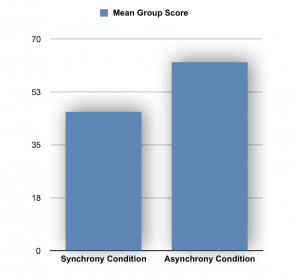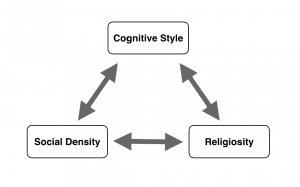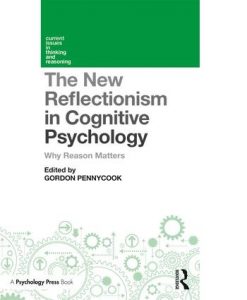Cognitive psychology has discovered that humans have two minds – one that processes information quickly, automatically, and unconsciously and one that slowly analyzes and reflects. It’s important for us to understand how these two sides of the brain interact with each other to comprehend the world around ourselves. But how can we measure their relationships to each other? And how can we know if they really exist in such a stark contrast?
These questions are only the beginning our interest in the way that the human mind relates to itself and its surroundings. We also wonder about the way this divide affects specific behaviors and beliefs – like, are there certain domains of human life that are more closely tied to one or the other? And, ultimately, how might this cognitive science inform our understanding of religious attitudes?
Focus areas
Meet the team




Approach
There has been a long-held assumption that religiosity is negatively related with analytical thought. Research on the origins of religious beliefs have therefore often focused on the unconscious cognitive mechanisms, such as threat detection, that are thought to underwrite them. But contemporary work in the cognitive science of religion has begun to push back against this dichotomy, pointing towards a more complex interplay of cultural and biological factors in determining the preferred cognitive style of religious and irreligious individuals.
The Cognitive Style and Religious Attitudes Project team is tackling some of these issues by gathering research data through online surveys at ExploringMyReligion.org. These surveys include different cognitive tests for analytical and holistic reasoning, demographic information and religious affiliation, and questions about different layers of religious ideology and orthodoxy.
These surveys enable them to test the hypothesis that religion and intuitive cognition are highly influenced by social interconnectedness. Rather than seeing intuitive or holistic styles of thought as resulting from a deficiency in analytical ability, the CSRA asks if religious practice generates a preference for holistic modes of thought.
Impact
The resulting publications will contribute to conversations in the scientific study of religion, political psychology, moral psychology, political science, and related fields.

Latest updates
Publications
Morgan, Wood, Caldwell-Harris, “Reflective Thought, Religious Belief and the Social Foundations Hypothesis” in The New Reflectionism in Cognitive Psychology: Why Reason Matters (2017).





